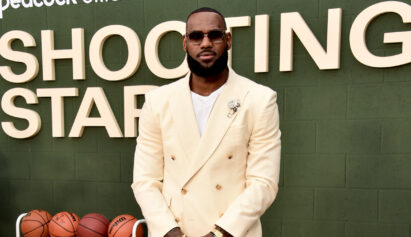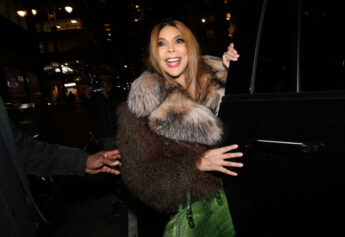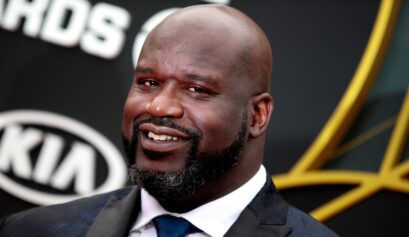Black Girl Sunscreen founder Shontay Lundy is dedicated to doing the work to dispel the myth that Black people don’t need to include sunscreen in their daily skin-care routines.
Lundy created Black Girl Sunscreen specifically with the protection of Black skin in mind, having launched the brand on Instagram in 2016. The line currently includes an option for adults in the form of BGS SPF 30 and for children, BGS Kids SPF 50.
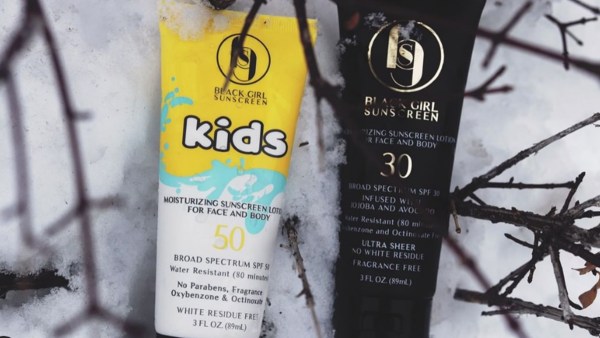
In a conversation with Atlanta Black Star, Lundy spoke about why she decided to create her sunscreen line, her passion for Black skin care and how her partnership with Target came to fruition. She also shared a couple of must-do skin-care tips, including ones in line with the American Academy of Dermatology Association. The organization recommends everyone wear sunscreen for protection daily because “people of all colors, including those with brown and black skin, get skin cancer” and “when skin cancer develops in people of color, it’s often in a late stage when diagnosed.”
Lundy, a New York native and self-described “woman of the sun,” was like a number of others not set on using sunscreen regularly. She was inspired to create BGS thanks to a change of scenery that resulted from a move from Miami, where she’d worked in corporate America, to Los Angeles. “That idea really came when I took myself out of my old environment, which was that South Florida hustle and bustle, working every single day, and coming over to California and just enjoying outside and letting my mind kind of wander.”
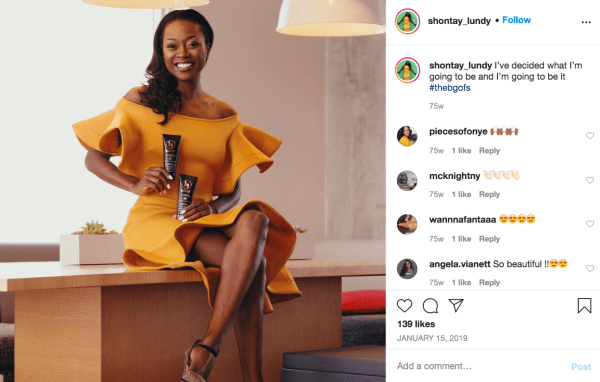
As a former hurdler and violinist in her youth, Lundy was no stranger to the discipline that it took to establish her company and from there to run a successful business. She credits her time of juggling schoolwork with extracurricular activities in the past with helping prepare her for entrepreneurship.
After spending eight months to a year on perfecting the ingredients (which include a mixture of natural components such as avocado, jojoba, aloe, cocoa butter, and carrot juice), her moisturizing, non-streak, no-residue formula was ready.
“When I think about what my ideal sunscreen was, that’s how I made Black Girl Sunscreen,” she said. “What is the next black girl going to want? And why aren’t we wearing sunscreen? And the number-one reason is because it left that chalky white residue on our skin. Whether you’re white, purple, gray, whatever color you are, when you wore it, it just wasn’t aesthetically pleasing, and it’s uncomfortable because when you wear a cosmetic product, you want to feel good and look good, and that’s not what the sunscreens on the market currently did. Then, the number-two reason was there’s the misconception that black people don’t need sunscreen.”
She shared yet another reason. “Third, which is probably the most important, is that this is created with Black women, women of color, in mind, where we had been excluded from this conversation for decades,” she explained. “So Black Girl Sunscreen, we take pride in taking that step forward to say, ‘Hey, you know what? Granted we have melanin, we have a built-in SPF in our skin, but that doesn’t mean that we can’t get sunburn.’ ”
Lundy attributes the success and growth of Black Girl Sunscreen to the power of the Black community and dollar. “When we move, we move. When we want to influence, we influence… We need to recognize our influence and our power. It doesn’t matter if we’re only 14 to 15 percent of the population…that’s what I think about the Black dollar, is that it means a lot to this economy. It holds a lot of weight.”
Promotion and sales for the brand were initially more grassroots through social media and trade show attendance, but further proving the power of the customer and Black dollar, Black Girl Sunscreen’s Target distribution deal came as the result of a happy client’s Reddit post that went viral. “It got picked up by literally every publication, and it just snowballed from there.”
After the boost in press caused by the viral post, Target reached out to strike a deal to get Black Girl Sunscreen on shelves across the country. “We got a call and it was them asking if we would be interested in trying the store out. And, of course, that’s a moment where you kind of put the phone on mute and you scream,” she said.
“When we launched in Target, we blew the doors off the hinges. I wasn’t surprised, I was just excited. I was excited to see that women of color are wearing sunscreen. I was excited to see that women are supporting us. I was excited to see that women wanted us to succeed.”
In fact, Black Girl Sunscreen sold more than enough units to earn full-time placement in the sunscreen aisle, a first-time accomplishment for a Black-owned brand.
Her passion for skin care carries over into the care and ingredients that she used to develop Black Girl Sunscreen and, while she does plan on expanding her business, she’s still pretty focused on the BGS products and mission for the time being.
“We wanna give products that cater to all different skin types because everyone has a different skin type,” she said. “So yes, you can see more from us. I can’t say if it’s gonna be in a different market, in terms of cosmetics or beauty because, really, our core, our structure is SPF. And really, our mission and vision is to start and continue that conversation of women protecting their skin… But until we have [ended] this preconceived notion that Black people don’t need sunscreen, we haven’t done our job yet.”


